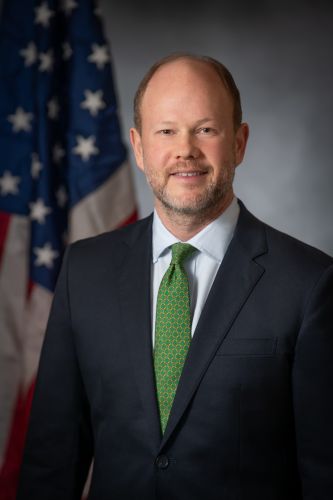BETHESDA, Md. (BRAIN) — Nearly four months after approving the e-mobility and lithium-ion battery testing standards, the Consumer Product Safety Commission submitted it to the Office of Information and Regulatory Affairs (OIRA) last month for review, a new and controversial procedure instituted by a presidential executive order.
"The commission has known the threat that lithium-ion batteries pose to the American public for over a decade; yet until today, it has not acted lawfully to advance rulemaking to set a safety standard for these products," according to a statement by Acting Chairman Peter A. Feldman. "Under new leadership, the agency is submitting the draft rule, which OIRA has determined to be significant, to OIRA, pursuant to the Executive Order 14215 (Feb. 28, 2025). This action moves the rulemaking process forward for centralized review."
The proposed rule has not been published in the Federal Register for comment as of Friday. In addition to the e-mobility and lithium-ion battery testing proposal, the CPSC advanced two mandatory toy safety standards for water beads and neck floats.
"In taking these actions, CPSC is proceeding consistent with President Trump's Ensuring Accountability for All Agencies framework, which restores accountability to historically independent agencies that are led by unelected commissioners," Feldman wrote. "At the same time, by working through OIRA, we ensure a whole-of-government approach to complex safety challenges. This approach strengthens rules, it does not delay them. Regrettably, former commissioners chose to stage political protests against the president rather than advance lifesaving standards through the appropriate channels. Had they followed the process established by President Trump, these protections could have advanced months earlier. ..."
Former commissioner Alexander Hoehn-Saric, who was fired along with his two Democratic colleagues in May for objecting to agency staff cuts, told BRAIN on Friday that this new procedure will allow for the rule to be either changed, killed, or remain as written before being sent to the Federal Register for a 60-day public comment period.
The OIRA, part of the Office of Management and Budget (OMB), now reviews regulations, helping President Donald Trump evaluate them.
"Have these things ever been sent to OMB before? Never for any changes," Hoehn-Saric told BRAIN. "Under the Congressional Review Act (CRA), OIRA determines whether a rule is 'major' under the CRA, but the White House did not get to modify it. This new process has no transparency or public input to it."
When the commission voted 3-2 to approve the measure in April, it was supposed to be submitted for public comment as required under the Notice of Public Rulemaking (NPR) guidelines. The proposal would require e-bikes and other e-mobility devices to meet modified UL testing standards — while not also recognizing European standards that some brands use. Depending on the comments received, promulgation could be delayed before advancing back to the commission before the final rule is issued.
However, Feldman introduced a motion during the vote to submit the proposal first to the OIRA, with Commissioner Douglas Dziak agreeing. Dziak announced last month he was stepping down ahead of his October term expiration, leaving only Feldman on the commission.
The two other commissioners voting for the proposal and against the motion — Richard Trumka Jr. and Mary T. Boyle — argued the OIRA doesn't have the authority to approve CPSC safety proposals. Feldman countered, saying ignoring the new regulatory process places proposed rulemaking at legal risk and encourages congressional disapproval.
Then in early May, Trump fired the three after they objected to agency staff cuts recommended by the Department of Government Efficiency. The commissioners filed a lawsuit shortly afterward.
"The administration has said that it wants to shut down the CPSC and move its functions to (the Department of Health and Human Services), which would remove its independence and put its activities under a single administrator," Hoehn-Saric said. "The president has had eight months to nominate a chairman and new commissioners. But Peter Feldman is still acting chairman and no permanent chairman has been nominated. President Trump never nominated somebody to replace Commissioner Dziak. He never nominated somebody to replace Commissioner Boyle. If the president had wanted, he could have a commission with a three Republican majority by now. Clearly, consumer safety is not a priority for him, nor is the functioning of the agency."


